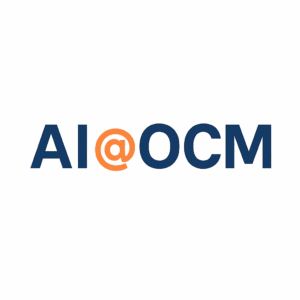In the rapidly evolving landscape of artificial intelligence (AI), the influence of organizational culture on the development and implementation of AI governance and ethical frameworks cannot be overstated. This blog post delves into how organizational culture shapes AI governance, the challenges of aligning culture with ethical AI use, and the critical role of Organizational Change Management (OCM) in fostering an environment conducive to ethical AI practices. We will explore the ways in which OCM can support education, literacy, and other initiatives to ensure AI technologies are used responsibly and effectively within organizations.
Understanding the Cultural Impact on AI Governance
Organizational culture refers to the shared values, beliefs, and behaviors that determine how a company’s employees and management interact and handle outside business transactions. When it comes to AI, the prevailing culture within an organization can significantly influence how AI tools are adopted, used, and governed. For example, a culture that prioritizes speed and innovation over due diligence may push for rapid AI deployment without adequately considering the ethical implications.
Key Cultural Factors Influencing AI Governance:
- Risk Tolerance: Organizations with a high tolerance for risk may adopt AI technologies more aggressively, potentially overlooking necessary governance structures.
- Innovation vs. Caution: Cultures that value innovation may prioritize the benefits of AI over potential risks, while more cautious cultures might emphasize thorough vetting and controls.
- Transparency and Openness: A culture that values transparency is more likely to implement AI governance frameworks that are clear and understandable to all stakeholders, promoting ethical practices.
Challenges of Aligning Culture with Ethical AI Use
Aligning organizational culture with the ethical use of AI presents several challenges:
- Resistance to Change: In many organizations, there may be resistance to adopting new technologies or changing traditional workflows, which can hinder the effective governance of AI.
- Diverse Interpretations of Ethics: Different stakeholders may have varying perceptions of what constitutes ethical use of AI, complicating the development of universally accepted governance frameworks.
- Keeping Pace with AI Advancements: Rapid advancements in AI can outstrip the organization’s cultural adaptability, leading to gaps in governance and ethical oversight.
How OCM Can Support Ethical AI Governance
Organizational Change Management is pivotal in bridging the gap between organizational culture and the ethical governance of AI. OCM can undertake several strategic initiatives to cultivate a culture that supports ethical AI practices.
1. Education and Literacy Programs
One of the primary roles of OCM is to implement comprehensive education and literacy programs that enhance understanding of AI technologies across the organization. These programs should cover:
- Basic AI Knowledge: Ensuring that employees at all levels understand what AI is, how it works, and its potential impact.
- Ethical Considerations: Educating employees about the ethical dimensions of AI, including bias, fairness, transparency, and accountability.
- Governance Structures: Explaining the organization’s policies and procedures for AI use, ensuring that governance frameworks are understood and followed.
2. Facilitating Cultural Adaptation
OCM can facilitate cultural adaptation by:
- Aligning AI Goals with Organizational Values: Integrating AI governance goals with the core values and mission of the organization, ensuring that AI initiatives are seen as extensions of existing values rather than foreign impositions.
- Cultural Assessments: Conducting regular cultural assessments to understand current attitudes towards AI and identifying areas where cultural shifts are needed.
- Leadership Involvement: Encouraging leaders to actively promote and model ethical AI practices, which can have a profound influence on organizational culture.
3. Promoting Ethical AI Champions
OCM can promote the development of ethical AI champions within the organization. These champions can serve as role models and advocates for ethical AI practices, helping to disseminate positive behaviors and attitudes throughout the organization.
4. Continuous Feedback and Improvement
Implementing mechanisms for continuous feedback on AI practices can help organizations adapt their AI governance as both technology and cultural understandings evolve. OCM can manage these feedback loops, ensuring that they are constructive and lead to actionable insights.
5. Inclusive Decision-Making
Incorporating diverse perspectives in AI decision-making processes can help ensure that the governance frameworks developed are inclusive and considerate of different ethical viewpoints. OCM can facilitate this inclusivity by organizing cross-departmental committees or focus groups that include a wide range of stakeholders.
Conclusion
The intersection of organizational culture and AI governance is complex but crucial for ensuring that AI technologies are used ethically and effectively. Through strategic Organizational Change Management, businesses can align their cultural practices with the ethical demands of modern AI usage. By investing in education, adapting cultural norms, and engaging leadership, organizations can create a strong foundation for ethical AI governance that not only enhances compliance and performance but also fosters trust and integrity in all AI endeavors.






